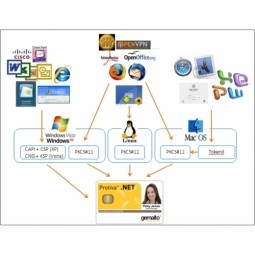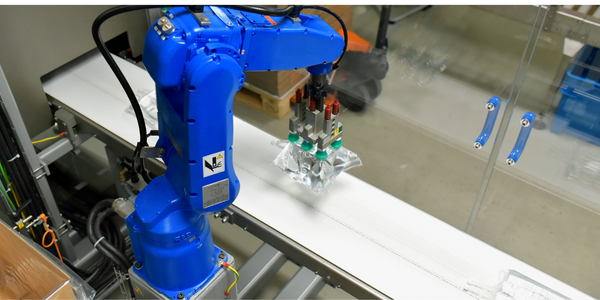Download PDF
Life Sciences Industry Case Study IT Authorization and Allocation
Technology Category
- Platform as a Service (PaaS) - Application Development Platforms
- Application Infrastructure & Middleware - Data Exchange & Integration
- Application Infrastructure & Middleware - Data Visualization
Applicable Industries
- Life Sciences
Applicable Functions
- Business Operation
- Quality Assurance
Use Cases
- Process Control & Optimization
- Remote Control
- Regulatory Compliance Monitoring
Services
- System Integration
- Software Design & Engineering Services
The Challenge
With over 80,000 employees in 139 countries, the efficiency and accuracy of Roche’s IT authorization and allocation process has been substandard in the past. Authorization requests took several days to be approved which impacted productivity. Human errors cost time and resources, and often resulted in the inadvertent allocation of user rights to inappropriate parties, a potential security risk. Challenges with the old processes include: Inconsistent Data. The IT department received numerous authorization requests every day with inconsistent information. Forms lacking complete information had to be returned to the requester for further completion. This part of the process would take several days to complete before the request could even be processed. Lack of Monitoring and Reporting. The lack of visibility in the authorization process was very frustrating for employees as they could not check the status of their requests or ensure that all of the necessary information had been submitted properly. Conversely, the IT department lacked a means of reporting, monitoring, and controlling the access and authorization rights they had granted. Time Consuming and Wasteful. The authorization process took several days to be approved meaning that employees were not able to complete all of the tasks required of them. Additionally, there was excessive lag time in the rerouting of access when the responsible party was unavailable.
About The Customer
Roche is a leading Life Sciences company with a broad spectrum of innovative medical solutions. For more than 100 years, they have been active in the discovery, development, manufacturing, and marketing of novel healthcare solutions. With over 80,000 employees in 139 countries, Roche is a global leader in the life sciences industry. The company is committed to improving the efficiency and accuracy of its IT authorization and allocation processes to enhance productivity and security. Roche's extensive operations and large workforce necessitate a robust and efficient system to manage IT authorizations effectively.
The Solution
Using the Ultimus Adaptive BPM Suite, the IT department standardized all IT authorization requests in a system called Authorization System IT (ASYS), which is based on the Ultimus BPM Platform. Now, requests for IT user and access authorizations are standardized and involve organization-wide allocation, change, and removal of IT user and access rights. Additionally, the enhanced monitoring and reporting functionality of the BPM suite allows Roche to ensure that the requested authorizations are allocated efficiently and can be verified at any time. Moreover, information concerning the user authorizations of any employee can be accessed at all times. In terms of security and controls, all approvals are regulated. Due to the process definitions with respect to the assigning of people for approval, inadvertent allocation of user rights is eliminated. With the Ultimus Adaptive BPM Suite, IT authorization supervision is centralized and approvals are regulated, so IT security is guaranteed. Integration with Roche’s database ensures prompt and secure updating of employee data. User access rights are removed or added promptly upon employee departure and hire.
Operational Impact
Quantitative Benefit
Related Case Studies.

Case Study
Corporate Identity Solution Adds Convenience to Beckman Coulter
Beckman Coulter wanted to implement a single factor solution for physical and remote logical access to corporate network. Bechman Coulter's users were carrying smart card badges for doors, but also needed a one-time password token to access to our corporate network when they were not in the office. They wanted to simplify the process.

Case Study
Embracing Business Success in Real Time
· Increase control over growing Big Data to improve business decisions · Manage data for 28,000 biotechnology stockkeeping units in the fields of microbiology, molecular biology, animal cell cultures, plant tissue cultures, and lab ware for laboratory chemicals · Accelerate report generation and analysis with real-time data

Case Study
Flow Robotics: Scaling Up Production and Accelerating Product Development with IoT
Flow Robotics, a Danish manufacturer, developed flowbot™ ONE pipetting robots to alleviate the strain on bioanalysts in life-science laboratories and hospitals across Europe. These robots were designed to automate part of the testing process, speeding up the time it takes to produce results and reducing pressure on staff. However, the company faced challenges in scaling up production and accelerating product development. High workloads and physically challenging conditions have long been an issue for laboratory professionals. Flow Robotics estimates that around half of medical lab technicians carry out the same arm movements for at least a quarter of their working day. The American Society for Clinical Pathology reported that 85% of laboratory professionals feel burnt out; 36% struggle with inadequate staffing; and 32% face a heavy workload and pressure to complete all testing on time.

Case Study
Revolutionizing Aerospace Industry with 3D Printing: A 63% Lighter Titanium Part
GE Aviation, a renowned name in the aerospace industry, recognized the potential of 3D printing technology in transforming the sector. The primary challenge was to reduce the weight of the aerospace parts, which would directly impact the fuel costs. A lighter airplane would mean lower fuel consumption, leading to cost savings and a smaller carbon footprint. However, achieving this weight reduction without compromising the strength and functionality of the parts was a significant challenge. Traditional manufacturing methods were not able to provide the desired weight reduction while maintaining the required stiffness and strength of the parts. The challenge was to find a solution that could create strong, light, and functional aerospace parts.
Case Study
Material Intelligence at Ethicon: Sustaining Medical Device Manufacturability and Improving Patient Care
Ethicon, a world-class medical devices company, faced several challenges in its operations. The rapid selection of manufacturing materials compliant in global markets was critical to assure patients, practitioners, and purchasing organizations of the biocompatibility of their medical devices. Ensuring supply chain continuity and minimizing risks of obsolescence for medical devices due to regulatory changes were also crucial in meeting Ethicon’s ongoing commitment to maintaining patient care. Furthermore, the engineers at Ethicon were developing the next generation of medical devices and needed to access historical material data to accelerate new product development. The process of centralizing and digitalizing its materials information was a significant challenge that Ethicon needed to overcome.
Case Study
IWT's Transformation: Customizing with Efficiency in IoT
IWT, a company specializing in the design, manufacture, and installation of washing systems for the life sciences and pharmaceutical industries, faced a significant challenge in managing its wide product portfolio. The company manufactures 45 different models, 60% of which are customized to some degree. This high level of customization, combined with limited production quantities, necessitated a controlled process for managing the release of engineering changes. The goal was to achieve efficiency, reduce process time, and better coordinate production throughout the organization. The need for strict compliance in heavily regulated industries further complicated the situation. IWT's existing PLM journey with Dassault Systèmes’ SOLIDWORKS for 3D CAD and Enovia for managing CAD data and Bills of Materials (BOMs) was proving inadequate. The system had limited part classification, no workflow, and no tool to ensure data consistency. The management of non-CAD documents was also a challenge, with information often difficult to find and access.




